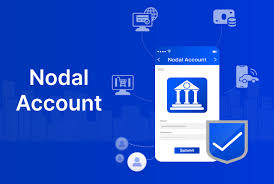🔁 What is a Nodal Account in Banking?
A Nodal Account is a special type of bank account used by intermediaries (like payment gateways, marketplaces, or aggregators) to hold funds on behalf of merchants or users. It’s regulated by the Reserve Bank of India (RBI) and is used for collecting and settling payments between customers and sellers.
These accounts are not meant for earning interest or personal transactions. They help ensure transparency, traceability, and regulatory compliance in the flow of money.
🧾 Example Use Case:
When you buy something from a seller on an e-commerce platform like Flipkart or Amazon, the money doesn’t go directly to the seller. It first goes into a nodal account held by the platform. Once the order is completed, the platform settles the payment from the nodal account to the seller’s account.
🧩 Key Features:
- Used by payment aggregators, online marketplaces, NBFCs, etc.
- Regulated under RBI guidelines
- No interest is paid on balances
- Ensures clear audit trails and accountability
- Facilitates secure, regulated fund flow
❓FAQs about Nodal Account
Q1: Who can open a nodal account?
A: Only regulated intermediaries such as:
- Payment gateways (e.g., Razorpay, Paytm)
- E-commerce platforms (e.g., Flipkart, Amazon)
- Aggregators (e.g., Ola, Swiggy) can open nodal accounts with RBI approval.
Q2: Is it a type of current account?
A: Yes, it is a type of current account, but with specific restrictions and regulatory oversight under RBI’s Payment and Settlement Systems Act.
Q3: Can I, as an individual, open a nodal account?
A: No, individuals cannot open nodal accounts. They are only for authorized business entities acting as intermediaries.
Q4: Does a nodal account earn interest?
A: No, nodal accounts are non-interest bearing by design.
Q5: What is the main purpose of a nodal account?
A: To hold funds temporarily before transferring them to the final recipient, ensuring compliance and preventing misuse or fraud.
Q6: How long can money stay in a nodal account?
A: As per RBI guidelines, funds must be settled to the final beneficiary within a prescribed timeline, typically 1-2 days.
Q7: How is a nodal account different from an escrow account?
A: Both hold funds temporarily, but:
- A nodal account is used by intermediaries for routing customer payments
- An escrow account holds funds for specific agreements (e.g., property deals) until conditions are met

No responses yet